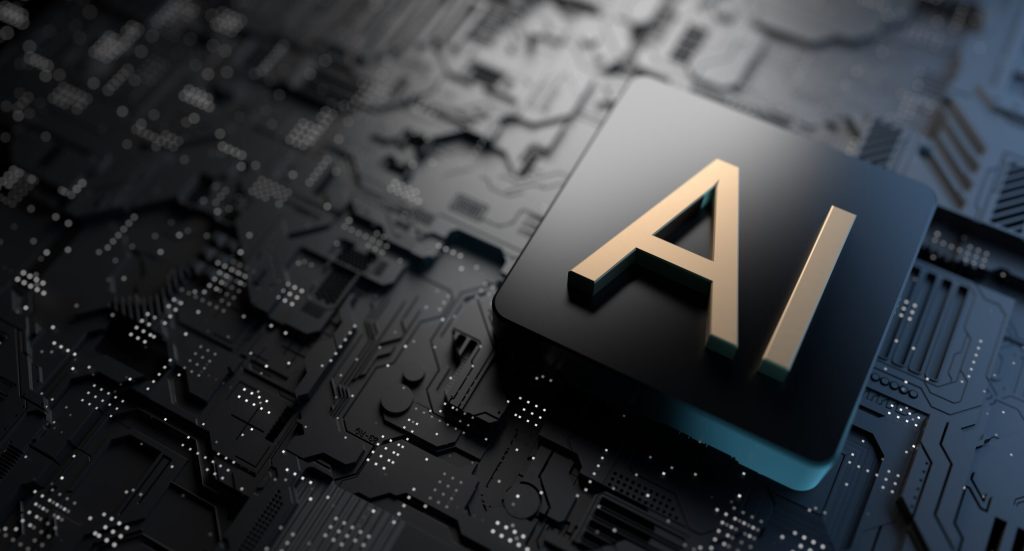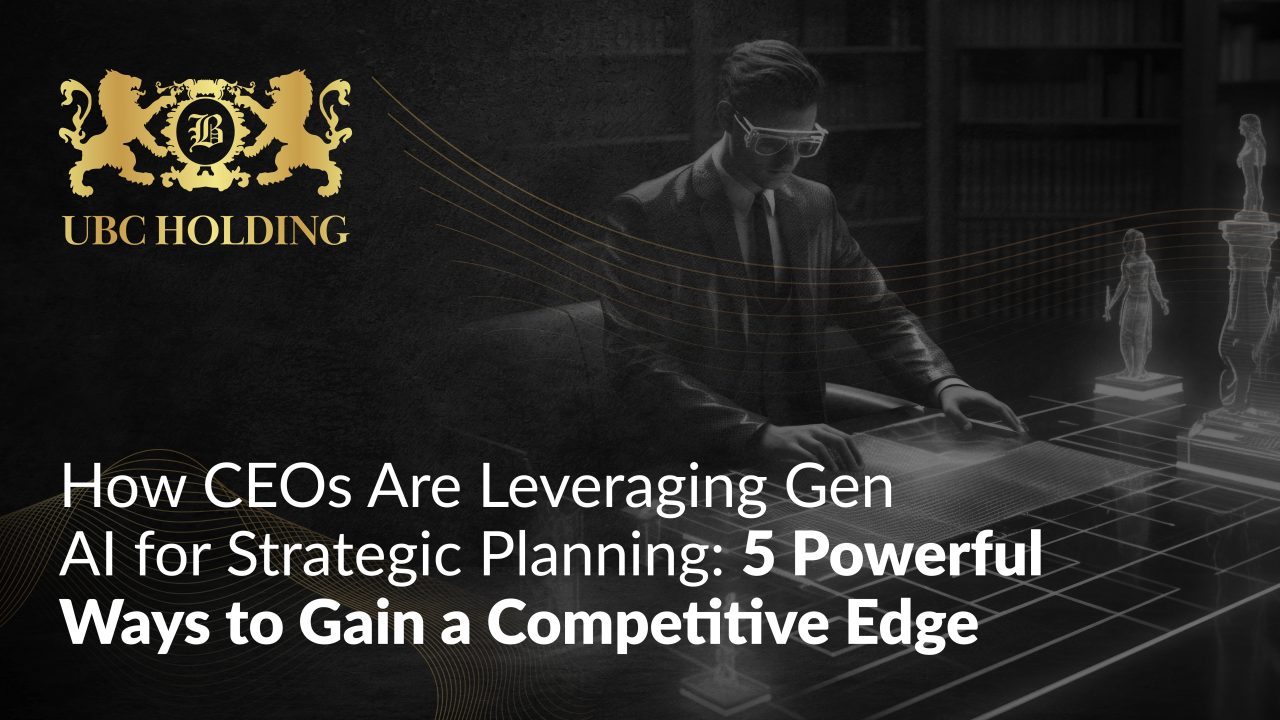In the rapidly evolving business landscape, staying ahead of the curve is crucial. CEOs worldwide are now turning to Generative Artificial Intelligence (Gen AI) as a cutting-edge solution for strategic planning. Gen AI goes beyond traditional AI by generating original insights, content, and predictive models that empower business leaders to make better-informed decisions. From forecasting future market trends to improving operational efficiency, Gen AI is revolutionizing how CEOs design and execute long-term business strategies.
This blog explores how top CEOs are using Gen AI to navigate the complexities of today’s global markets, enhance decision-making processes, and foster innovation. We will examine seven key ways Gen AI is reshaping strategic planning and discuss practical steps for business leaders to implement these AI-driven strategies effectively.
What Is Generative AI and How Does It Transform Strategic Planning?
Generative AI refers to advanced machine learning models that can create new data, simulations, and insights based on existing datasets. These AI models, including technologies like OpenAI’s GPT, are transforming industries by automating tasks, analyzing large datasets, and generating predictive insights at unprecedented speeds.
For CEOs, this technological breakthrough is invaluable for strategic planning, enabling data-driven decision-making and automation. It also offers the ability to explore multiple future scenarios, providing organizations with a competitive edge by anticipating shifts in the market, mitigating risks, and seizing opportunities.

1. Enhanced Data-Driven Decision Making
At the heart of every successful strategic plan is data. However, the sheer volume of data available today can overwhelm traditional decision-making frameworks. CEOs are leveraging Gen AI to sift through massive amounts of structured and unstructured data, identifying trends and insights that would otherwise go unnoticed.
Gen AI analyzes historical data, market dynamics, and customer behavior patterns, providing CEOs with real-time insights that drive more informed, evidence-based decisions. By automating the data analysis process, CEOs save time and are equipped with detailed projections and forecasts that improve the accuracy of their strategic plans.
**Example**: Consider a retail CEO who needs to forecast future sales trends. Gen AI can analyze past purchasing data, predict future demand, and adjust inventory levels accordingly. The CEO now has actionable insights to increase profitability and customer satisfaction.
**Key Insight**: According to a Gartner study, organizations that effectively leverage AI for decision-making improve their profitability by up to 20%.
2. Scenario Planning and Predictive Analytics
One of the most significant contributions of Gen AI to strategic planning is in the realm of scenario planning. Traditional scenario planning can be slow and reactive, but Gen AI enables CEOs to simulate various future scenarios rapidly and accurately. These simulations help business leaders test different strategies in hypothetical environments, understanding the potential impact of external forces such as economic downturns, regulatory changes, or shifts in consumer behavior.
Gen AI’s predictive analytics capabilities allow CEOs to anticipate and prepare for future challenges. By building AI models that assess multiple variables, business leaders can reduce uncertainty and make decisions with greater confidence. Predictive analytics also helps identify emerging trends that may affect their industry, allowing companies to stay proactive rather than reactive.
**Example**: A manufacturing CEO can use Gen AI to simulate the impact of supply chain disruptions. By running multiple scenarios, the CEO can pinpoint weak links in the supply chain and implement contingency plans to mitigate risk.
**Key Insight**: A McKinsey report suggests that companies using predictive analytics are 2.9 times more likely to outperform their competitors in key business metrics.
3. Automating Routine Strategic Processes
CEOs often juggle numerous tasks, many of which are repetitive but necessary for executing strategic plans. Generative AI is helping leaders by automating routine processes such as data collection, report generation, and performance monitoring.
With AI handling these tasks, CEOs can free up valuable time to focus on high-level strategic decisions. Automated systems powered by AI can monitor and report on key performance indicators (KPIs), deliver real-time updates, and adjust operational strategies based on current data. This constant flow of information ensures that business leaders stay informed without getting bogged down by manual reporting tasks.
**Example**: A financial services CEO can use Gen AI to automate risk assessment processes, enabling the company to identify financial risks quickly while reducing the time spent on manual analysis.
**Key Insight**: Deloitte’s AI research indicates that AI-driven automation can lead to a 30% reduction in operational costs while boosting productivity by up to 50%.
4. Optimizing Resource Allocation
One of the greatest challenges in strategic planning is resource allocation. CEOs must decide how to allocate capital, labor, and other resources effectively to achieve their goals. Gen AI is instrumental in optimizing resource distribution by analyzing historical data, market trends, and performance metrics to create the most efficient allocation strategy.
By identifying areas where resources are underutilized or overextended, AI provides insights that help CEOs reallocate their workforce, budget, and investments to maximize productivity and profitability. These systems also dynamically adjust resource allocation based on real-time feedback, ensuring the company remains agile and adaptable in fluctuating markets.
**Example**: A CEO in the healthcare sector can use Gen AI to analyze patient data and optimize staffing levels across multiple hospital branches, ensuring each location has the right number of professionals based on demand forecasts.

5. Personalized Strategy Formulation
In the past, strategic plans were often one-size-fits-all models. However, Gen AI enables CEOs to create highly personalized strategies that cater to the unique needs of their business. By analyzing data from specific departments, markets, or customer segments, Gen AI helps craft strategies tailored to the organization’s goals and challenges.
Whether the focus is on sales, marketing, operations, or customer experience, AI delivers actionable insights that allow business leaders to fine-tune their strategies to address specific areas of need. This customization ensures a higher degree of success in executing the company’s strategic vision.
**Example**: A retail CEO can use AI to segment customers based on purchasing behaviors and develop personalized marketing strategies that increase engagement and sales.
**Key Insight**: Companies that personalize their strategies using AI experience a 15% higher success rate in achieving their objectives.
6. Mitigating Risks and Strengthening Resilience
In today’s volatile business environment, risk management is more critical than ever. CEOs are using Gen AI to assess risks across their organization and mitigate potential threats before they escalate. AI tools can monitor and analyze internal and external data, identifying warning signs and vulnerabilities that may pose a threat to the company’s long-term strategy.
With AI, CEOs can build more resilient businesses by developing contingency plans based on simulated risk scenarios. Whether dealing with cybersecurity threats, supply chain disruptions, or financial risks, AI ensures that businesses are prepared to navigate and respond to potential crises effectively.
**Example**: A tech CEO can use Gen AI to monitor global supply chain risks, allowing the company to anticipate disruptions and secure alternative suppliers before shortages impact production.
**Key Insight**: According to PwC, 73% of business leaders believe that AI-driven risk management will be critical to their organization’s success in the coming decade.
7. Fostering Innovation and Driving Product Development
Innovation is key to staying competitive in the modern market, and Gen AI is playing a pivotal role in fostering creativity and product development. By analyzing consumer trends, competitor products, and industry shifts, AI helps CEOs identify gaps in the market and develop new products or services to meet these needs.
AI can also streamline the product development process by creating prototypes, running simulations, and testing potential innovations virtually. This allows companies to bring products to market faster while reducing the costs associated with traditional research and development methods.
**Example**: A CEO in the automotive industry can use Gen AI to analyze feedback from electric vehicle customers and design innovative features that cater to emerging consumer demands.
**Key Insight**: According to a study by the World Economic Forum, AI could contribute up to $15.7 trillion to the global economy by 2030 through innovation and increased productivity.
Frequently Asked Questions (FAQs)
1. How does Generative AI help CEOs in decision-making?
Gen AI provides real-time insights and predictive models, helping CEOs make data-driven decisions with greater accuracy and confidence. By automating data analysis, AI reduces decision-making time and increases efficiency.
2. What industries benefit the most from Gen AI in strategic planning?
While Gen AI has broad applications, industries like finance, healthcare, manufacturing, retail, and technology are seeing the most significant impact in terms of innovation, operational efficiency, and risk management.
3. Can Gen AI replace human decision-making in strategic planning?
Gen AI is a tool that augments human decision-making, not replaces it. While AI enhances data analysis and scenario planning, human judgment and leadership remain essential in guiding strategic direction.
4. How secure is the data used by Gen AI for strategic planning?
Data security is a priority in AI applications, and organizations use advanced encryption and security protocols to protect sensitive information processed by AI systems.
5. When should CEOs start adopting Gen AI for strategic planning?
The sooner, the better. Early adoption of Gen AI allows CEOs to stay ahead of the competition, improve efficiency, and future-proof their businesses by leveraging predictive analytics and automation.
Generative AI is transforming how CEOs approach strategic planning, offering unparalleled tools to enhance decision-making, optimize resource allocation, and foster innovation. By leveraging Gen AI, business leaders can anticipate market changes, mitigate risks, and implement personalized strategies tailored to their company’s needs. The integration of AI into strategic planning is no longer a futuristic idea—it’s a reality that forward-thinking CEOs are embracing to stay competitive in today’s dynamic business environment.
Stock Exchange AI is Transforming Modern Trading

